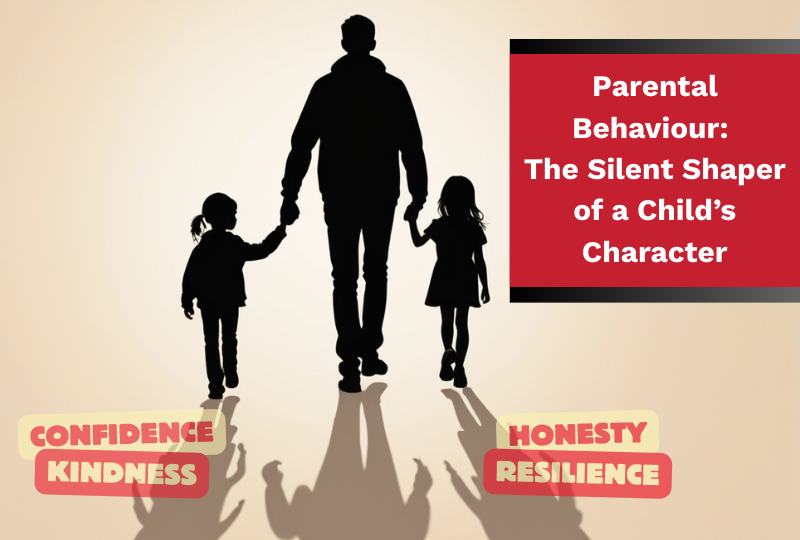Parental Behaviour: The Silent Shaper of a Child’s Character
February 13, 2025 2025-09-17 8:27Parental Behaviour: The Silent Shaper of a Child’s Character

Parental Behaviour: The Silent Shaper of a Child’s Character
Family education is the earliest and most influential form of education a child receives, shaping their future growth, habits, and emotional well being. Research consistently shows that family education plays a crucial role in shaping children’s behavioural habits. At Navriti, we believe that education extends beyond the classroom—it begins at home, where parents play a crucial role in setting the foundation for their child’s character and behaviour.
The Role of Family Education
Family education is more than academic success; it nurtures a child’s social skills, emotional intelligence, and moral compass. A stable and structured home environment provides children with a sense of security, helping them develop discipline, responsibility, and resilience. Parents who actively engage in their child’s learning by setting clear boundaries and fostering open communication create a strong foundation for lifelong development.
The Power of Parental Behaviour
Children learn by imitation, making parents their first and most influential teachers. Research shows that consistent, positive parental behaviour directly shapes a child’s habits. Positive reinforcement, such as praise and rewards, can enhance the sustainability of good behaviour. For example, parents who consistently demonstrate good manners, respect, and emotional control are more likely to have children who exhibit these behaviours. On the other hand, inconsistent or negative behaviours can lead to the development of undesirable habits.
A structured family environment is essential for developing good behavioural habits. Parents should establish regular routines for daily activities such as meals, homework, and bedtime. These routines help children develop self-discipline and a sense of responsibility. Additionally, involving children in household chores and decision-making processes can enhance their sense of autonomy and independence.
At Navriti, we integrate parental workshops on conscious parenting, equipping caregivers with the tools to become the role models they aspire to be. These sessions emphasize mindful communication, emotional regulation, and value-based parenting, ensuring that children internalize strong values, empathy, and resilience.
Effective communication is key to fostering good behavioural habits. Parents should encourage their children to express their feelings and needs, and listen actively to their ideas. This not only helps in developing strong parent-child relationships but also enhances children’s social skills and problem-solving abilities. Parents should guide their children in finding solutions to problems, which can boost their confidence and resilience.
Emotional intelligence is a critical component of good behavioural habits. Helping children recognize and manage their emotions is essential. Parents can use games, role-playing, and storytelling to teach children about different emotions and appropriate responses. Techniques such as deep breathing and calm thinking can help children stay composed and make better decisions.
Family education is the cornerstone of a child’s development. By setting clear rules, leading by example, providing a structured environment, and encouraging communication and emotional intelligence, parents can significantly influence their children’s behavioural habits.
At Navriti, we believe in a partnership between parents and educators, ensuring that children receive consistent guidance and support both at home and in school. Our focus on conscious parenting and emotional intelligence empowers families to create nurturing environments where children feel valued, understood, and motivated to become their best selves.
Good behavioural habits aren’t formed overnight—they require patience, consistency, and collaboration. By working together, parents and educators can raise confident, compassionate, and resilient individuals who are prepared to thrive in an ever-evolving world. Building a strong connection with children before addressing and correcting their behaviour is essential for effective parenting and long-term success.

















